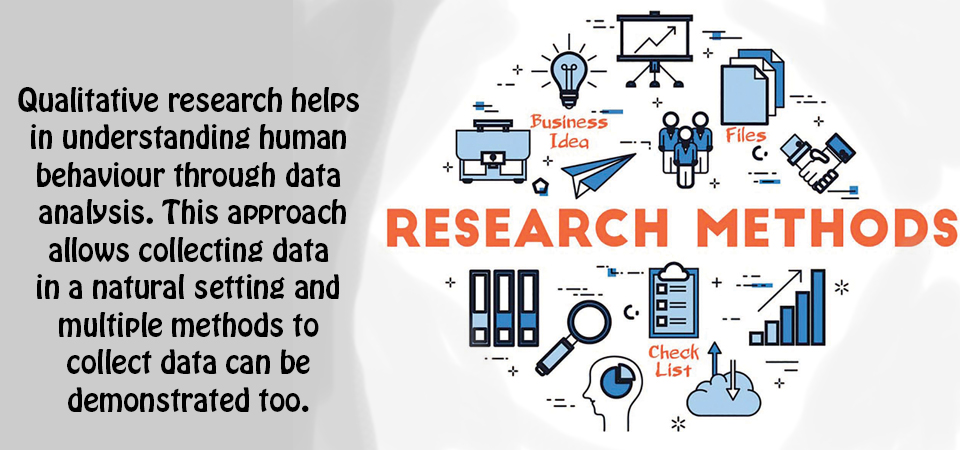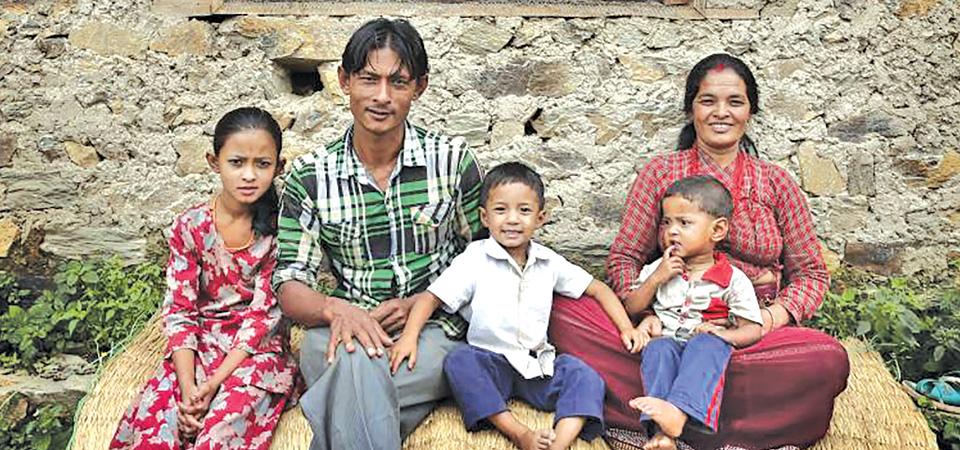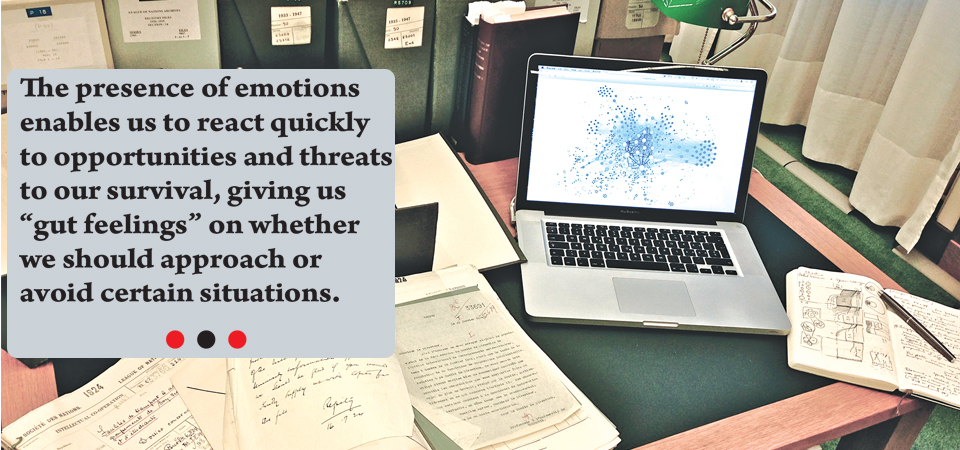Conducting Qualitative Research

Pushpa Priya
Qualitative research is a process of collecting, analysing and interpreting data that is non-numerical. It is carried out in a natural setting to comprehend the social reality of individuals, groups and cultures.
Qualitative research is the means of understanding people's experience of the world. This is the opposite of quantitative research as there is an involvement in collecting and analysing non-numerical data like text, video or audio. Qualitative methods allow the researcher to explore concepts and experiences in more detail. This approach involves data collection methods like observation, interviews, focus groups, surveys, and secondary research.
Observation
Observation is concerned mainly with what the researchers have observed that might be both verbal and non-verbal communication messages. Basic things like facial expression, physical environment, space are observed Focus group employ discussion on target group; the survey is mainly carried through submitting open-ended questions in the form of questionnaires.
Secondary research includes collecting data from published journals, books, magazines, newspapers; etc. In qualitative research, the researchers themselves consider themselves as research instrument since all observations, interpretations and analyses are filtered through their lens. Certain features make research qualitative.
Qualitative research is concerned with four key ideas that make it qualitative. These are research questions: qualitative research asks many types of questions in particular ways; research settings are also fitted in particular ways, claims also differ in comparison to other types of research, warrants are the foundation for qualitative research. This research can also proceed without any research questions since there comes many research questions during the process of data collection. It is flexible and exploratory as well. Theory can be set up in thematic ways.
Qualitative research comprises four stages. The first stage initiates with making a question or questions that are required for study, the second stage means a research design that is a medium to study questions for its solution, the third stage is concerned with related for data collection and the fourth stage is all about analysing the collected data.
Qualitative research is considered a cyclical one since the findings it comes up with invite many questions. To carry out this research the researcher needs to be methodical as one in terms of knowing research sites and participants, need to analyse the sort of challenges that are supposed to come along in the process of collecting data, need to maintain ethical considerations so that it may not harm the participant's feelings and sentiments in anyways.
Unlike quantitative research, qualitative research happens in an active form. There is a research cycle that moves from formulating a question, and to collecting the answer or data there is a need to identify data that may be likely to respond to the research question and after collecting data there comes up analyzing the data to make conclusions or claims that are findings of the qualitative research. Claims constitute both findings and limitations. It depends on warrants.
Qualitative research is widely used in disciplines related to humanities and social science. A qualitative approach is generally related to how the social world is perceived, described and experienced. It tries to find the reality through subjective opinions of the people in the social world. It perceives that each individual has the knowledge and we can create meaning or reality through interaction. Qualitative research relies on words and meaning rather than numbers and statistics. And mainly tries to address the social problem with a solution.
Qualitative research helps in understanding human behaviour through data analysis. This approach allows collecting data in a natural setting and multiple methods to collect data can be demonstrated too. In addition, it involves active participation through interviews, questionnaires, surveys; etc that also gives a good chance for good rapport building between research participants and the researcher in an efficient manner.
Approach
This approach of research has respect for individual differences. Moreover, qualitative research allows developing soft skills like communicative skills, interpersonal skills, decision-making skills, time management skills, rapport-formulating skills or socialising skills. These skills are life-essential skills that teach the art of living indeed.
This approach of research does data analysis through thick descriptions that not only comprise general interaction but also emotions, feelings that happen in a real and natural social setting. It is more organised, focused, and experimental in grasping the emotions and feelings of the research participants.
This approach of research is adopted by disciplines like sociology, anthropology, communication studies, psychology, education, and human geography. It might also involve engagement with research participants for an extended period to learn cultural practices of a particular culture that usually depends on the aim of the research study. It has some limitations too like: qualitative research may be time-consuming, there may be a risk of losing objectivity and so on.
(The writes teaches English at Katmandu-based colleges)
Recent News

Do not make expressions casting dout on election: EC
14 Apr, 2022
CM Bhatta says may New Year 2079 BS inspire positive thinking
14 Apr, 2022
Three new cases, 44 recoveries in 24 hours
14 Apr, 2022
689 climbers of 84 teams so far acquire permits for climbing various peaks this spring season
14 Apr, 2022
How the rising cost of living crisis is impacting Nepal
14 Apr, 2022
US military confirms an interstellar meteor collided with Earth
14 Apr, 2022
Valneva Covid vaccine approved for use in UK
14 Apr, 2022
Chair Prachanda highlights need of unity among Maoist, Communist forces
14 Apr, 2022
Ranbir Kapoor and Alia Bhatt: Bollywood toasts star couple on wedding
14 Apr, 2022
President Bhandari confers decorations (Photo Feature)
14 Apr, 2022










